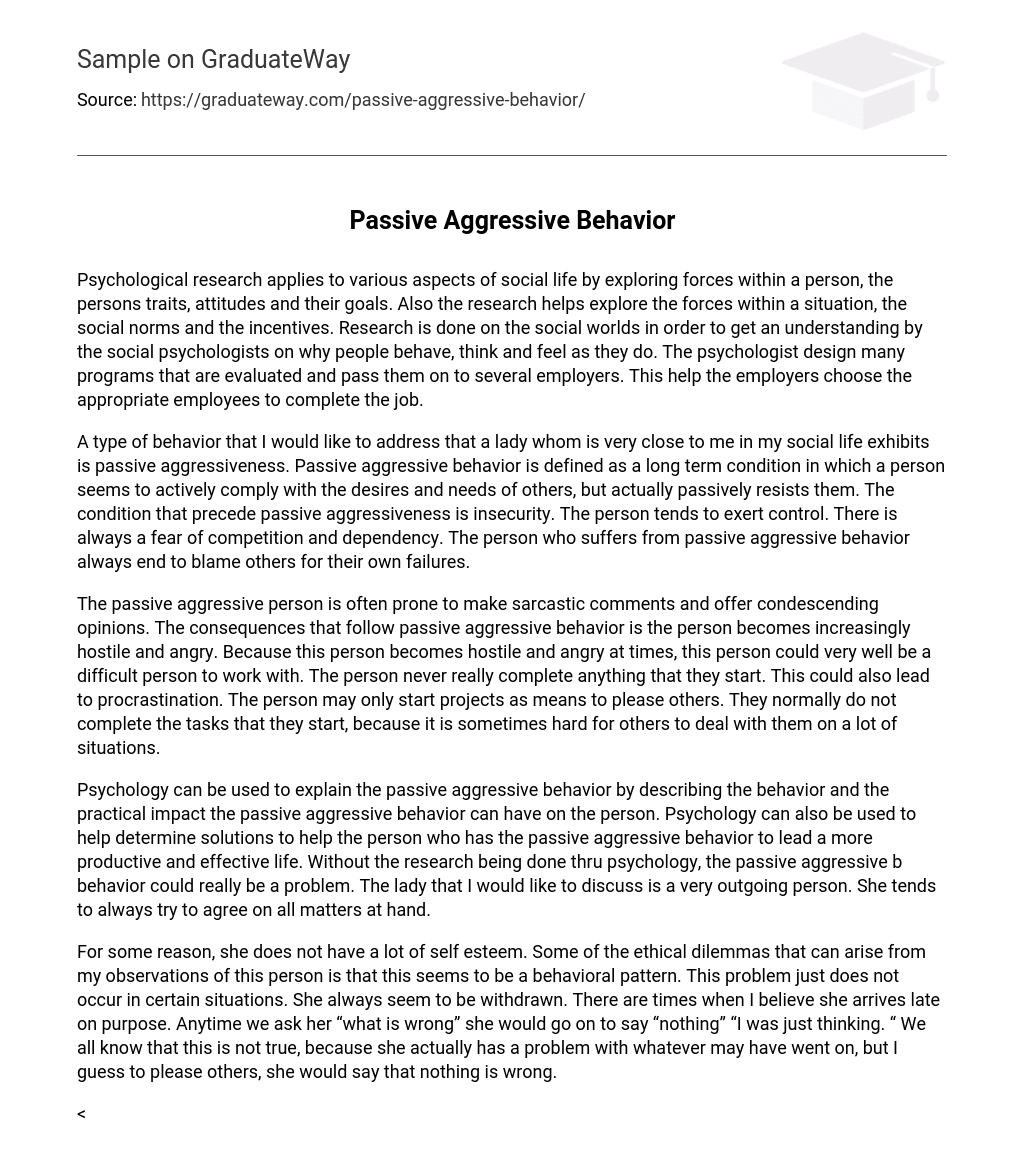Psychological research covers a wide range of social aspects, including the investigation of internal factors such as traits, attitudes, and goals, along with external factors like social norms and incentives in particular situations. Social psychologists conduct studies to gain deeper understanding of individuals’ behavior, thoughts, and emotions in various social contexts. They also create and assess different programs designed to assist employers in selecting appropriate candidates for specific positions.
There is a woman in my social circle who exhibits passive aggressive behavior. This behavior involves outwardly agreeing with others’ wishes but secretly opposing them. It stems from insecurity and the need for control, as well as a fear of competition and reliance on others. Moreover, people displaying this conduct often blame others for their own shortcomings.
Passive-aggressive individuals frequently make sarcastic remarks and offer condescending opinions, leading to increasing hostility and anger. Consequently, working with such individuals can be challenging due to their incomplete tasks and tendency towards procrastination. These individuals often start projects only to satisfy others, but they struggle to follow through on these tasks due to difficulty in handling various situations.
Psychology is useful in understanding and addressing passive-aggressive behavior, including its description and potential effects on individuals. It can also be utilized to identify ways to assist those exhibiting passive-aggressive behavior in achieving a more fruitful and efficient life. Research conducted through psychology plays a crucial role in addressing the challenges posed by passive-aggressive behavior. In this context, I would like to focus on an extroverted individual who consistently strives to agree on all matters at hand.
Her consistent pattern of behavioral withdrawal suggests a lack of self-esteem, with unknown reasons. This tendency to withdraw is not limited to specific situations; instead, she consistently appears withdrawn. There are instances where she deliberately arrives late and when asked about it, she dismisses any concerns by saying she was lost in thought. However, we all know this is untrue as she clearly struggles with the situation but chooses to deny her problems in order to please others.
Despite consistently presenting herself as someone who is always trying to connect with others, she struggles with her self-confidence. She also feels the urge to admire others. At a social gathering, we noticed that she was upset with some of us and asked her if she was angry and what the matter was. However, all she could respond was “Nothing.” Additionally, there are times when she appears resentful and tries to undermine specific situations. Furthermore, whenever we work on projects together with her, she consistently fails to finish what she starts.
Working with her can be challenging due to her quick temper and tendency to blame others, including myself, for any issues. This behavior extends to her relationships, where she frequently resorts to hostile silence, even with us. Regardless of our efforts, there are consistently highs and lows.





